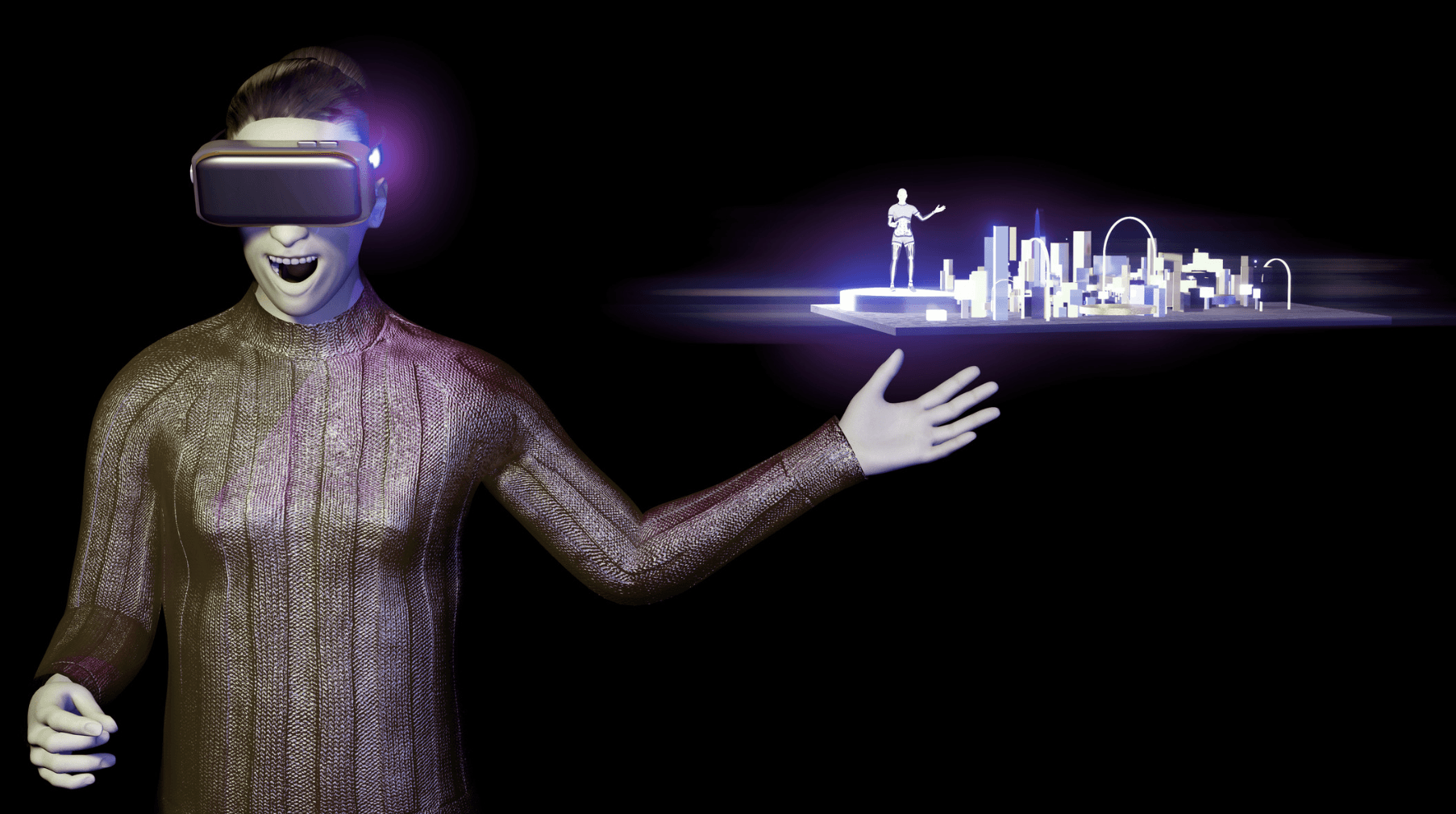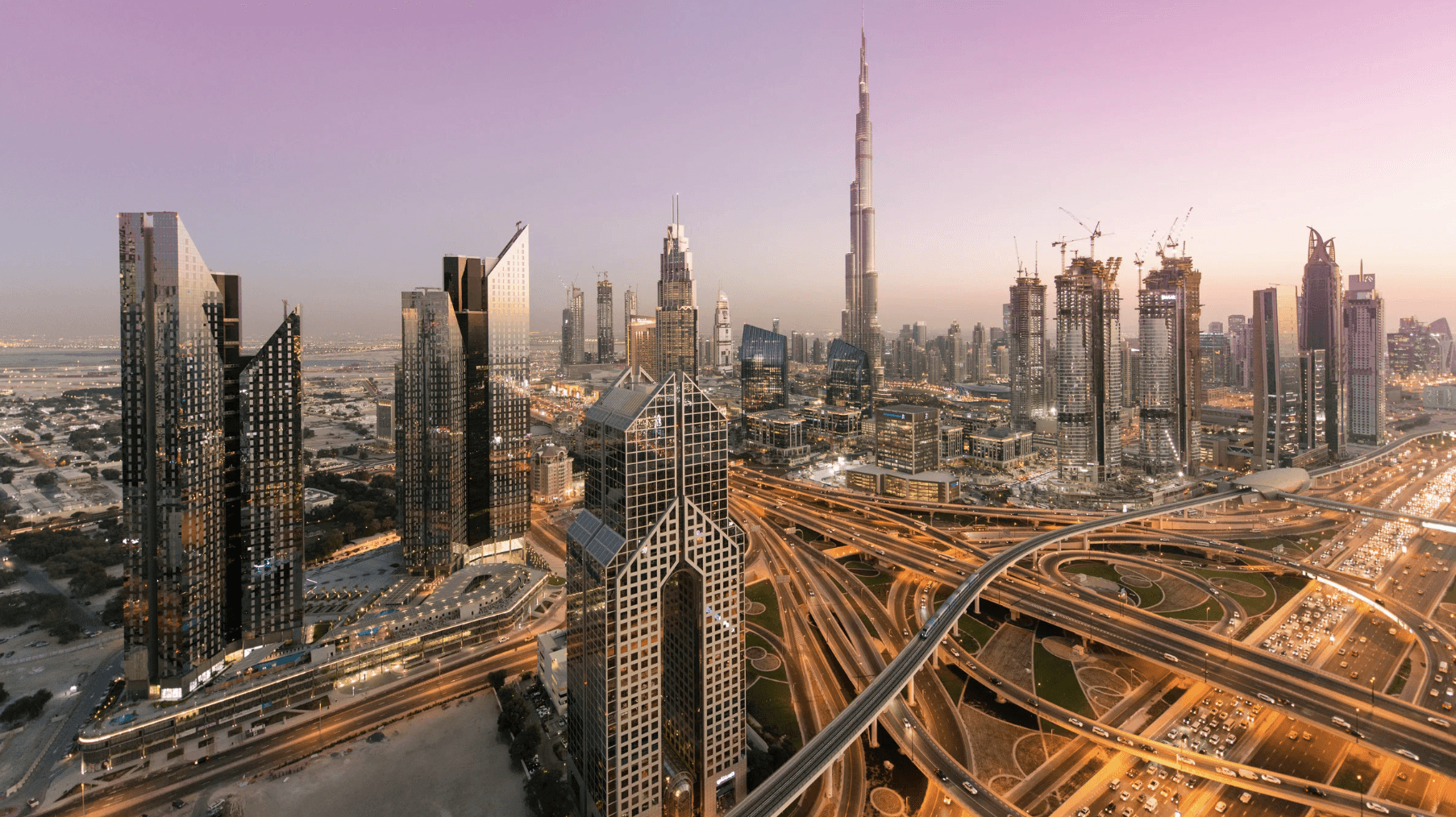Back to Blog
The Potential of the Metaverse for Government Operations
Jul 27, 2023
Callum Moates
The metaverse is set to transform how we interact, work, and govern. Spanning beyond traditional virtual reality (VR), it offers users a dynamic and immersive experience where they can socialize, conduct business, and engage in various activities. As governments explore innovative ways to enhance their operations, the metaverse emerges as a powerful tool with vast potential to reshape how governments operate. By leveraging its capabilities, governments can streamline processes, foster transparency, and embrace a more technologically-driven approach to governance in this new era.
Enhancing government services through the metaverse
The Middle East and North Africa (MENA) are on a journey of economic transformation, and businesses and government bodies are displaying a growing appetite for new immersive tools like the metaverse. Substantial investments are pouring into the metaverse, with the market projected to reach a total global value of nearly $800 billion by 2024, driven by active participation from GCC (Gulf Cooperation Council) countries.
Here are some potential ways the government can use the metaverse to improve services:
Virtual government offices: Governments can establish virtual offices within the 3D internet environment where citizens can interact with government representatives, receive information, and access services. The United Arab Emirates (UAE) Ministry of Economy recently launched its headquarters in the metaverse to offer services digitally to visitors from anywhere in the world. Another example is Ajman City, in the UAE, which created a virtual police office in the metaverse for citizens to access anywhere. This approach can reduce the need for physical offices, making services available 24/7 to citizens from the comfort of their homes.
Public meetings and consultations: Town hall meetings, talks, and public hearings can occur in virtual environments, allowing citizens to participate anywhere in the world. Cities like Seoul, South Korea, are building virtual city halls for citizen engagement. Dubai Municipality is also embracing the potential of the metaverse with plans for a digital city called 'One Human Reality.' These advancements offer citizens greater accessibility, convenience, and immersive environments to participate in.
Virtual training and education: Governments can take proactive steps to lay the groundwork for effectively integrating VR and digital technologies in public education. This approach includes curriculum development, digital literacy schemes, and support for educators to maximize the metaverse technology's impact. Ensuring equitable access to these technologies across all schools is crucial to prevent further disparities between well-resourced and underprivileged institutions.
Remote healthcare and support: Research by Antier indicates that the global metaverse market in healthcare is expected to be valued at $71.6 billion by 2030. Governments can leverage the 3D internet’s potential to provide citizens with healthcare services for anything from physical and mental well-being to improving accessibility and providing error-free triage. Dubai's Ministry of Health and Prevention recently announced the launch of the first-ever customer happiness service center in the metaverse to provide consultations to customers in a virtual, interactive environment.

Smart City initiatives
The metaverse’s digital environment can facilitate the creation of smart city initiatives by enabling virtual access to services, creating digital twin cities, and building virtual replicas of infrastructure to visualize project plans better. In the MENA region, cities are already embracing 3D internet technology to develop better towns and urban projects, some of which are:
The UAE’s virtual city in the metaverse
The United Arab Emirates (UAE) is taking the lead in developing an innovative city plan by announcing the creation of a virtual city in the metaverse. With Dubai and Abu Dhabi as the first cities on the list, the UAE aims to simulate real-life events and locations in this virtual environment. The UAE seeks to overcome real-world limitations by prioritizing the development of the education and healthcare sectors in its metaverse project. The region will build the project using digital twin technology (DTT), a crucial aspect in creating an efficient, cost-effective metaverse experience integrated with wireless networks. The UAE's vision to create a digital twin city aims to reduce the city’s carbon footprint.
Egypt’s Metatut in the metaverse
Metatut, the first Egyptian city in the virtual world, was brought to life by Tutera, the company behind this groundbreaking project. Dr. Somaya Bahy Eldin, the vice president of Tutera, explains that the inspiration behind creating Metatut was to commemorate the centenary of the discovery of Tutankhamun's tomb. This virtual platform offers an extraordinary opportunity for visitors and tourists to immerse themselves in ancient Egyptian civilization. Users can explore historical sites like the Valley of the Kings, the Chamber of the Sun, the Palace of Akhenaten, and the Magic Melody. Metatut allows individuals to listen to historical accounts, learn about Egyptian culture, and experience the wonders of this ancient civilization through VR, smartphones, or desktops.
Saudi Arabia’s NEOM smart city
NEOM, the $500 billion smart city home to THE LINE in Saudi Arabia, is not just a conventional "smart" city but a groundbreaking "cognitive" city. Unlike traditional smart cities that utilize only a fraction of available data, NEOM's cognitive community harnesses more than 90% of its data to create a predictive system. This predictive approach enables NEOM to offer its residents and businesses ever-improving services. The smart city project has announced the launch of XVRS, a “cognitive digital twin metaverse” allowing visitors to experience NEOM physically and virtually as an avatar or hologram. As NEOM is being built, the virtual replica of the city will help inform and plan the city’s construction, from crowdsourcing design elements to allowing individuals to buy apartments virtually so project workers can start building it physically.

Digital Governance and Data Visualization
The metaverse can be crucial in supporting data visualization and decision-making for government policymakers by leveraging 3D data representations and virtual dashboards and interfaces. These technologies offer immersive and interactive ways to analyze complex data sets and create visualizations, leading to better policy formulation and data-driven governance. Here's how data visualization in the 3D internet is beneficial:
3D data representations for complex data sets: Traditional data visualization tools often present data in 2D charts or graphs, limiting the depth of understanding for complex datasets. However, in the metaverse, policymakers can access 3D data representations, providing a more intuitive and comprehensive understanding of information.
Enhanced data exploration and interaction: In the metaverse, policymakers can interact with data in novel ways. They can manipulate and explore data points using VR controllers or gestures, enabling them to focus on specific aspects and gain deeper insights. For example, in urban planning, a policymaker can use VR to "walk through" a virtual city and analyze data on air quality, traffic flow, and noise levels, allowing them to make more informed decisions regarding sustainable development.
Virtual dashboards and interfaces: Virtual dashboards can aggregate real-time and dynamic data streams into immersive and interactive visualizations. These dashboards can present complex datasets more intuitively, allowing policymakers to identify trends, patterns, and anomalies more effectively.

Implementation and challenges
Digital inclusion and accessibility: Making the metaverse accessible to all individuals, including those with disabilities and limited resources, is essential to avoid widening societal inequalities. Governments must ensure citizens have dependable and affordable access to high-capacity, low-latency internet to access services in the metaverse.
Cost of infrastructure: The technological framework of the 3D internet integrates elements like AR, AI, head-mounted displays, the Internet of Things (IoT), and geospatial technologies, which come at a cost. Governments must set a plan to build metaverse projects, ensuring that it gives them the return on investment and utility they need in the long run.
Lack of skilled workforce: Governments might need more qualified professionals familiar with metaverse technologies and operations to efficiently establish and manage operations in this virtual realm. Countering this challenge will require government entities to consider collaborating with technology leaders to upskill labor forces.
Conclusion
In conclusion, the metaverse has vast potential for government operations enabling the creation of virtual offices, town halls, public health systems, and education facilities. Governments can also ramp up the development and operations of smart city projects by using the metaverse for urban planning, sustainable development of cities, and collecting real-time data to drive policymaking. However, governments must enact proactive measures to address challenges in this evolving space. Prioritizing data privacy and security, ensuring digital inclusion, managing the cost of infrastructure, and skilling their labor forces are crucial to ensure success in the space.
If you’re a government body looking to establish a presence in the metaverse, we can help build and scale your operations in the metaverse. Get in touch with us!
Jul 27, 2023
Callum Moates
Subscribe to our monthly newsletter
About Landvault
Landvault is building infrastructure to accelerate the metaverse economy, by building tools to create, deploy and monetize content. The company has helped over 200 clients enter the metaverse, including both Fortune 500 companies and government organizations like the Abu Dhabi government, Mastercard, L’Oreal, Red Bull, and Heineken. The company has raised a total of $40m over the past three years and continues to pioneer technological advancements.
